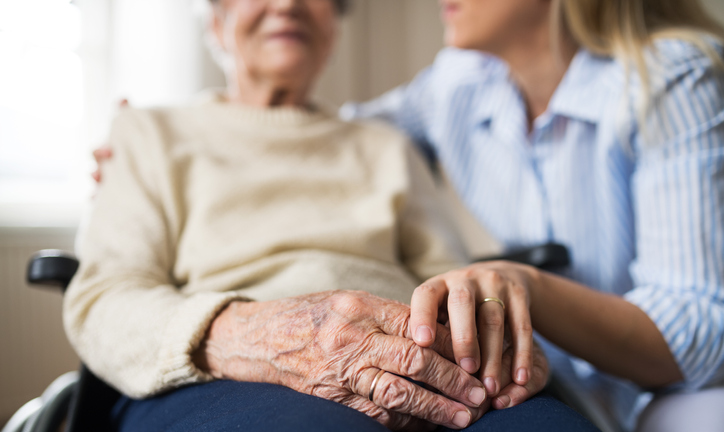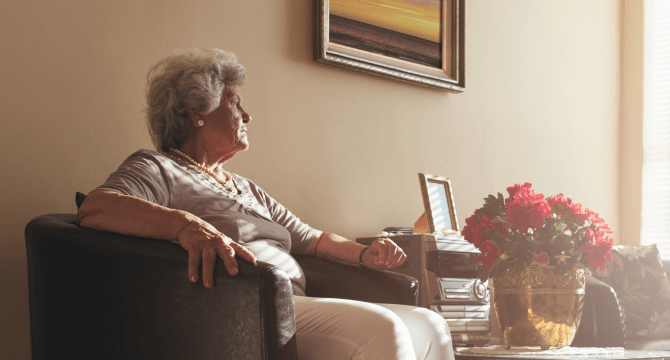
Helping elderly parents is a multifaceted and emotional experience that can be draining on everyone. There are some ways to make your parent's care easier and reduce conflict. These tips can help choose the right Medicare program and apply for benefits. To assist with discharge and hospitalization, a patient advocate is available. These tips will allow you to provide better care for your elderly parents, and reduce your risk for dementia.
Senior parent caregiving can be multifaceted.
Caregiving for an elderly parent is a challenge. While most elderly parents turn to their adult children for help, many adults are not prepared to care for aging parents. A competent child may find it difficult to care for aging parents if one of his siblings is not ready. In such a scenario, it is important to develop relationships with family members and discuss feelings openly. The caregiver needs to be honest about both his or her feelings and the feelings that are shared by the care-receiver. Caring for someone you love is a multi-faceted process that must be handled with care and compassion.
Caregiving brings out all emotions, no matter if a parent needs emotional or physical support. Some caregivers experience joy and solace; others feel deep depression, worry, and sadness. Research shows that caregivers suffer from more clinical depression rates than the general public. Guilt can also be manifested during caregiving. Here are some ways to deal with it. Read Sustenance and Hope for Caregivers of Elderly Parents: Bread of Angels

It can be physically and emotionally exhausting
Caring for elderly parents can be both physically and mentally tiring. Even acquaintances may not be familiar with the caregiving responsibilities. They might not understand the stress and frustrations. Caring for a parent is a time-consuming task that can affect family time. A caregiver might feel isolated and depressed, while guilt could be a constant companion. This mental fatigue can cause confusion and even worse than physical exhaustion.
As a family caregiver, it is possible to have to confront parents about their concerns and needs. Senior citizens can feel anxious about aging. They may fear losing their independence, or long-term consequences of serious medical conditions. They might hide new symptoms or even be secretive. Your parents may make dangerous decisions and you might experience an identity crisis. You can manage this stress by understanding the signs of emotional or physical exhaustion, and then taking the appropriate actions to address them.
It can reduce tensions, family arguments, and other conflicts
To avoid family conflict, it is important to maintain a constant line of communication with your elderly parents. Regular family meetings can be a great way of discussing any changes in care or potential problems. Communication can be made easier by technology, especially if elderly parents live in different places. This third party can also help mediate family meetings. Remember that siblings can foster strong intergenerational bonds by allowing them to communicate openly.
Siblings often disagree about who should take care of their aging parents. There may be arguments about who pays for care, what the parent should consume, or how much money to spend on a task. These arguments aren't always right. It is hard to see an older parent's condition deteriorate. But, it should not lead to family disputes about who should be responsible.

It can reduce dementia risk
Despite the increasing incidence of dementia, you can reduce the risk for your elderly parents by engaging in physical and mental activities. Regular physical activity is a great way to keep your brain active and healthy. It also has many health benefits that will benefit your overall well-being. Regular physical activity can help improve your heart health and circulation, as well as mental wellbeing. Learning a new language or taking up classes are two options. Learning a new skill can provide a challenge to the brain.
The risk of developing dementia is also reduced by exercising. Studies have shown that higher education is associated with a lower risk of Alzheimer's. Higher education results in stronger brain networks, which are better equipped and able to handle cell damage. The cells that are damaged in Alzheimer's can be caused by this disease. It is important to do everything possible to ensure your parent stays healthy. You can incorporate these activities into your everyday life. Even if it's not possible to go to the gym, you can take a 30 minute walk or use the stairs instead.